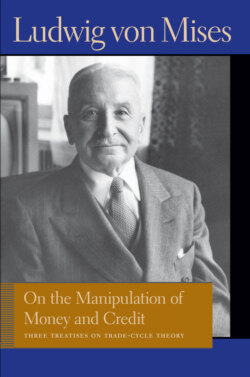Читать книгу On the Manipulation of Money and Credit - Людвиг фон Мизес - Страница 22
На сайте Литреса книга снята с продажи.
2. Financing Unpopular Expenditures
ОглавлениеHigh taxes can be imposed only if the general public is in agreement with the purposes for which the funds collected will be used. In this connection, it is worth noting that the higher the general burden of taxes, the more difficult it becomes to deceive public opinion as to the fact that the taxes cannot be borne by the more affluent minority of the population alone. Even taxes levied on property owners and the more affluent affect the entire economy. Their indirect effects on the less well-to-do are often felt more intensely than would be those from direct proportional taxation. It may not be easy to detect these relationships when tax rates are relatively low, but they can hardly be overlooked when taxes are higher. However, there is no doubt that the present system of taxing “property” can hardly be carried any farther than it already has been in the countries where inflationism now prevails. Thus the decision will have to be made to rely more directly on the masses for providing funds. For policy makers who enjoy the confidence of the masses only if they impose no obvious sacrifice, this is something they dare not risk.
Can anyone doubt that the warring peoples of Europe would have tired of the conflict much sooner, if their governments had clearly, candidly, and promptly presented them with the bill for military expenses? No war party in any European country would have dared to levy any considerable taxes on the masses to pay the costs of the war. Even in England, the printing presses were set in motion. Inflation had the great advantage of creating an appearance of economic well-being, of an increase of wealth. It also concealed capital consumption by falsifying monetary calculations. The inflation led to illusory entrepreneurial and capitalistic profits, which could be taxed as income at especially high rates. This could be done without the masses, and frequently even without the taxpayers themselves, noticing that a portion of capital itself was being taxed away. Inflation made it possible to turn the anger of the people against “war profiteers, speculators and smugglers.” Thus, inflation proved itself an excellent psychological aid to the prowar policy, leading to destruction and annihilation.
What the war began, the revolution continues. A socialistic or semi-socialistic government needs money to operate unprofitable enterprises, to subsidize the unemployed and to provide the people with cheap food supplies. Yet, it cannot raise the funds through taxes. It dares not tell the people the truth. The pro-statist, pro-socialist doctrine calling for government operation of the railroads would lose its popularity very quickly if a special tax were levied to cover the operating losses of the government railroads. If the Austrian masses themselves had been asked to pay a special bread tax, they would very soon have realized from whence came the funds to make the bread cheaper.
